Table of Contents
Truth is an increasingly tarnished notion in a world filled with distortions and outright lies. Being true to yourself is important and it’s difficult to maintain that kind of self-authenticity when we are being inauthentic with others.
It is worth noting just how highly some of the most important figures in world history have valued the truth. This extends both to being honest with those around us as well as honest with ourselves, to say nothing of telling the truth when it is difficult.
The last part might be the hardest. When people talk about “honesty” they often refer to the little interactions we make on a daily basis. While this can be difficult at times, it is nothing compared to telling a necessary but difficult truth at a time when all the cards are stacked against you. This is what requires true moral courage—to tell the truth when one has skin in the game.
But by telling the truth in the little things we can train ourselves to tell the big truths when they matter the most. Read on to learn why some of the greatest minds of human history valued the truth so highly and why they considered telling uncomfortable truths to be of paramount importance.
Quotes About Honesty
John Steinbeck
“Can you honestly love a dishonest thing?”
– John Steinbeck, The Winter of Our Discontent

In John Steinbeck’s novel “The Winter of Our Discontent,” this quote encapsulates a profound existential and moral dilemma. It questions the possibility of genuine affection or devotion towards something inherently deceitful or immoral.
At its core, the quote probes the complexities of human nature and the contradictions within our emotions. Can one truly experience love, a sentiment rooted in authenticity and sincerity, towards something that is fundamentally dishonest or corrupted? It challenges the integrity of affection and forces introspection on the nature of our attachments.
Steinbeck, known for his exploration of the human condition and ethical quandaries, uses this quote to provoke thought on the compromises individuals make in their relationships with themselves, others, and society. It underscores the tension between our desires and our principles, urging readers to confront the moral implications of their actions and allegiances.
Truman Capote
“The answer is good things only happen to you if you’re good. Good? Honest is more what I mean…Be anything but a coward, a pretender, an emotional crook, a whore: I’d rather have cancer than a dishonest heart.”
– Truman Capote, Breakfast at Tiffany’s
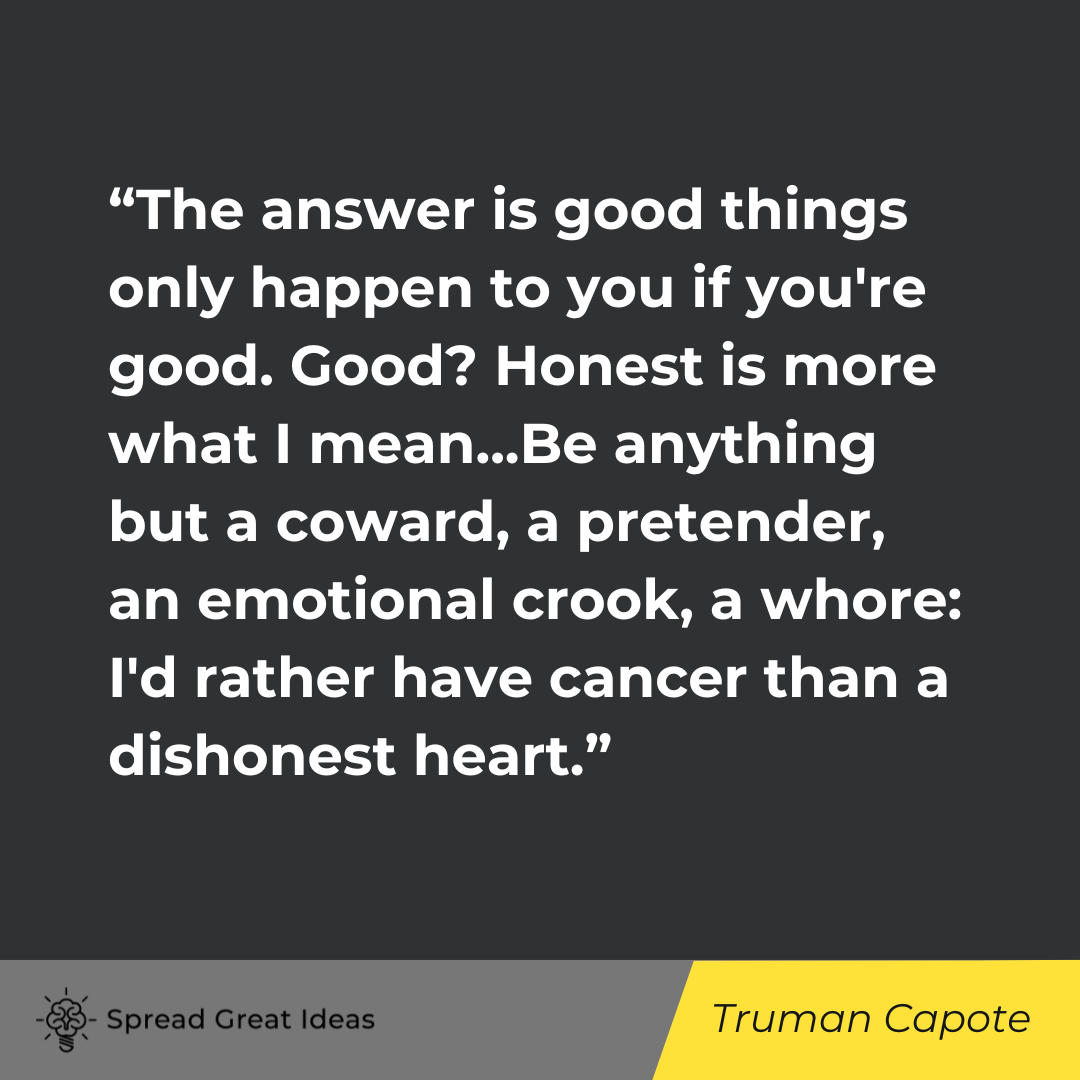
In Truman Capote’s “Breakfast at Tiffany’s,” the quote underscores a profound ethos emphasizing the primacy of honesty and integrity in human character. Through the protagonist’s voice, Capote delivers a poignant message, suggesting that true goodness stems from genuine sincerity rather than mere outward displays of virtue.
The quote condemns moral cowardice, pretense, emotional manipulation, and deceit as greater sins than any physical affliction. Capote’s choice of stark imagery, such as preferring cancer over a dishonest heart, vividly illustrates the gravity of moral compromise.
By prioritizing honesty and ethical fortitude, the quote challenges readers to confront their own values and behaviors. It serves as a compelling reminder that the purity of one’s character and the sincerity of one’s actions are essential in navigating life’s complexities and maintaining personal integrity amidst adversity.
Mark Twain
“Honesty: The best of all the lost arts.”
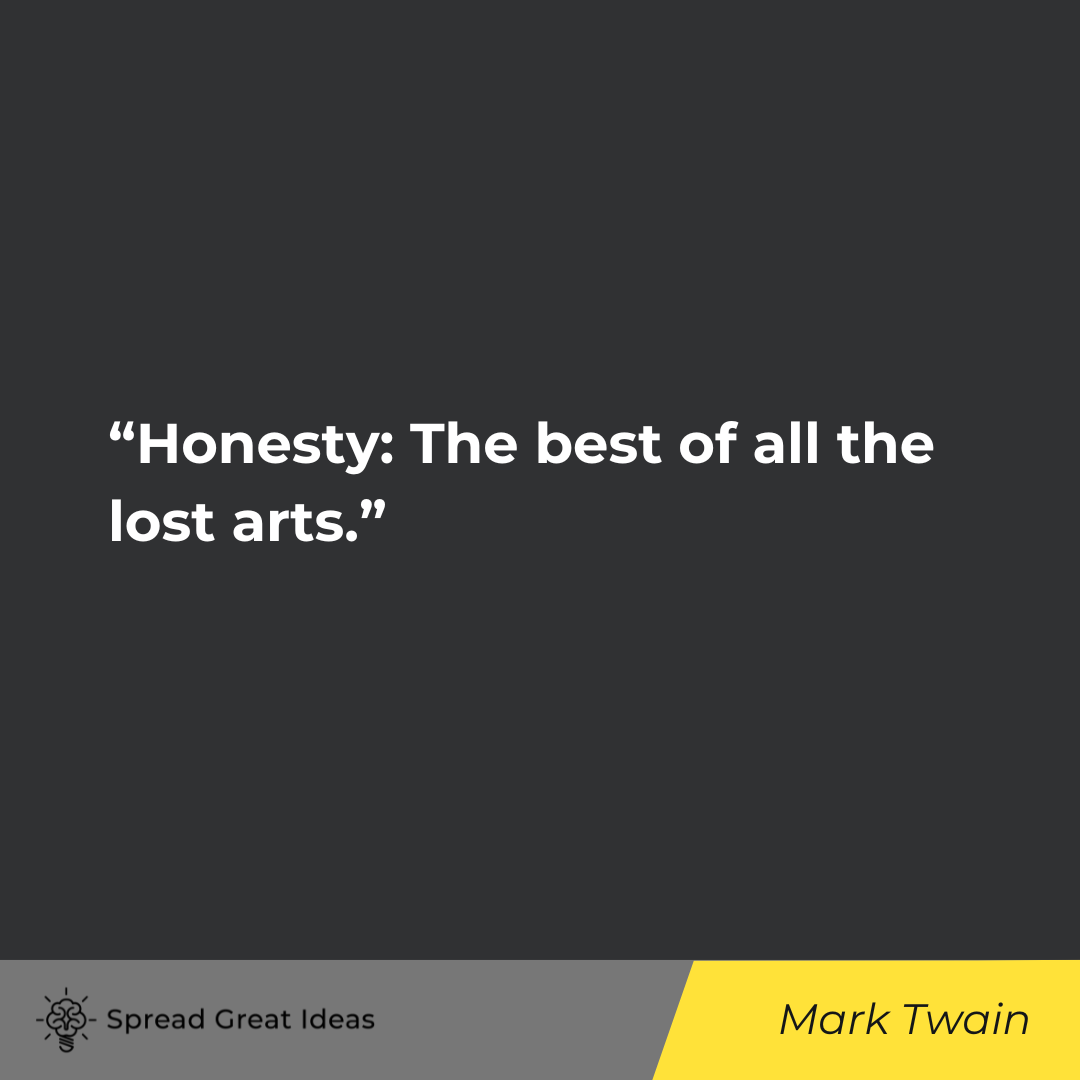
Mark Twain’s succinct declaration, “Honesty: The best of all the lost arts,” encapsulates a profound observation on the contemporary state of integrity. In just a few words, Twain encapsulates a poignant commentary on the diminishing value of honesty in society. He suggests that amidst a plethora of societal changes, the art of honesty has been neglected and forgotten. This quote serves as a powerful reminder of the enduring importance of truthfulness in personal relationships, professional endeavors, and societal interactions. Twain’s timeless insight prompts introspection on the virtues of honesty and the imperative of preserving this fundamental aspect of human decency.
Mark Twain
“There’s one way to find out if a man is honest: ask him; if he says yes, you know he’s crooked.”
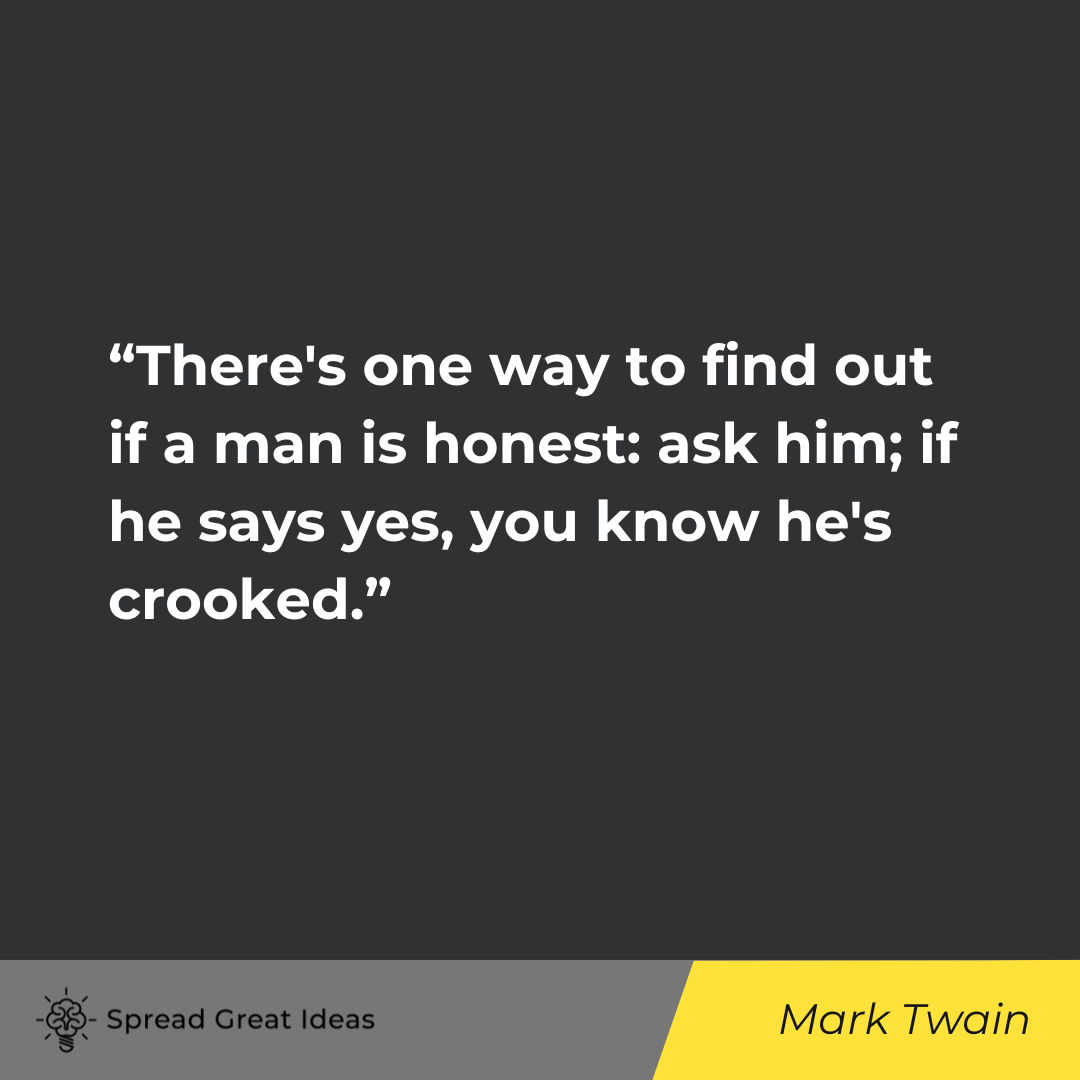
Mark Twain’s incisive wit shines through in this quote: “There’s one way to find out if a man is honest: ask him; if he says yes, you know he’s crooked.” With characteristic humor and astuteness, Twain highlights the paradox of dishonesty. By posing a direct question about honesty, Twain suggests that those who affirm their integrity may actually be concealing their deceit. This quote serves as a cautionary reminder to look beyond mere words and scrutinize actions. Twain’s timeless wisdom prompts reflection on the complexities of human nature and the necessity of discernment in navigating trust and authenticity.
Noël Coward
“It’s discouraging to think how many people are shocked by honesty and how few by deceit.”
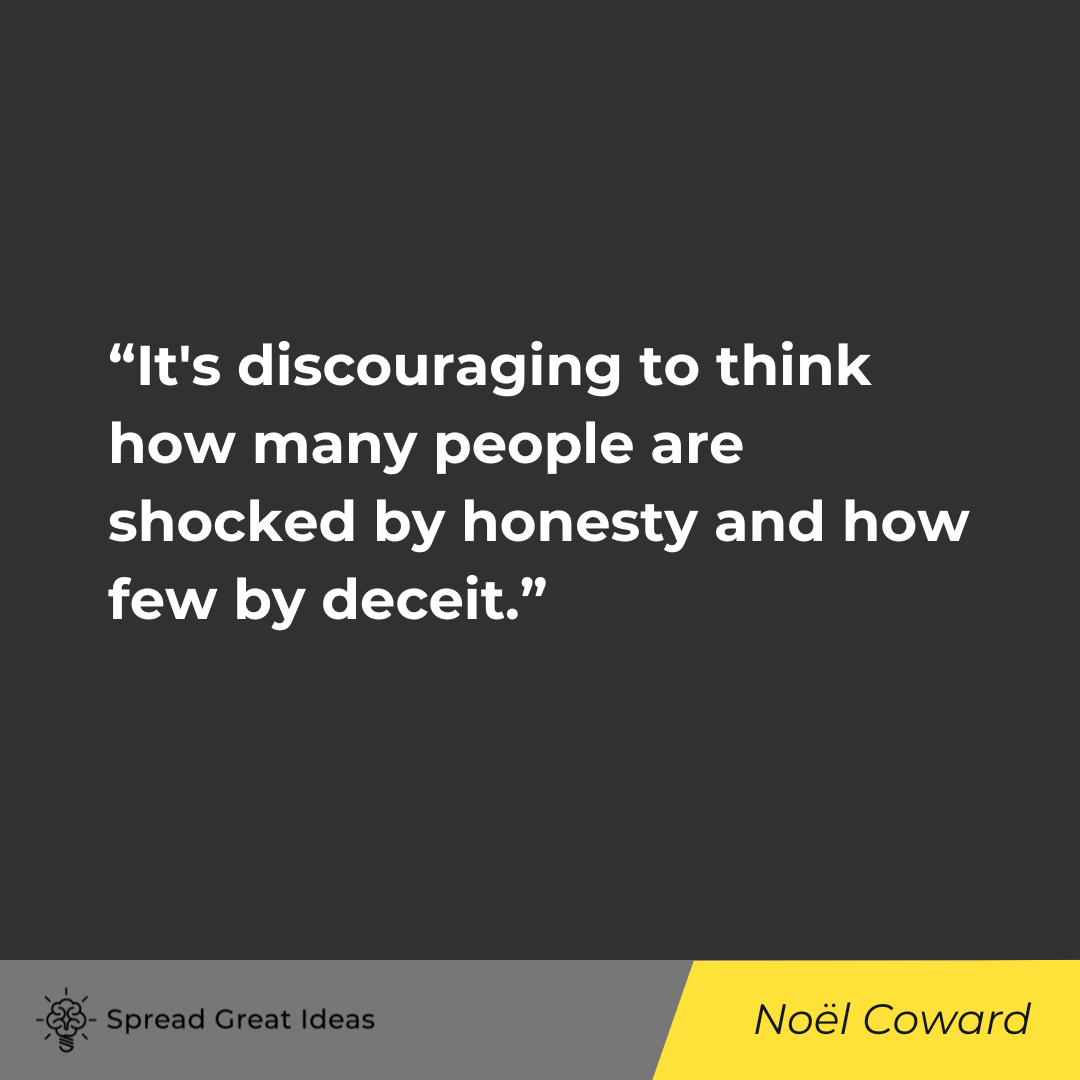
Noël Coward’s quote from “Blithe Spirit” offers a biting commentary on human nature: “It’s discouraging to think how many people are shocked by honesty and how few by deceit.” In a mere sentence, Coward exposes a disheartening truth about societal norms. He highlights the irony that honesty often meets with surprise or even criticism, while deceit may go unnoticed or even accepted. This observation prompts reflection on the values and priorities of society, suggesting a skewed perception of morality. Coward’s insight challenges us to reevaluate our reactions to honesty and deceit, urging a reconsideration of what truly deserves our shock and disapproval.
Louisa May Alcott
“Simple, genuine goodness is the best capital to found the business of this life upon. It lasts when fame and money fail, and is the only riches we can take out of this world with us.”
– Louisa May Alcott, Little Men
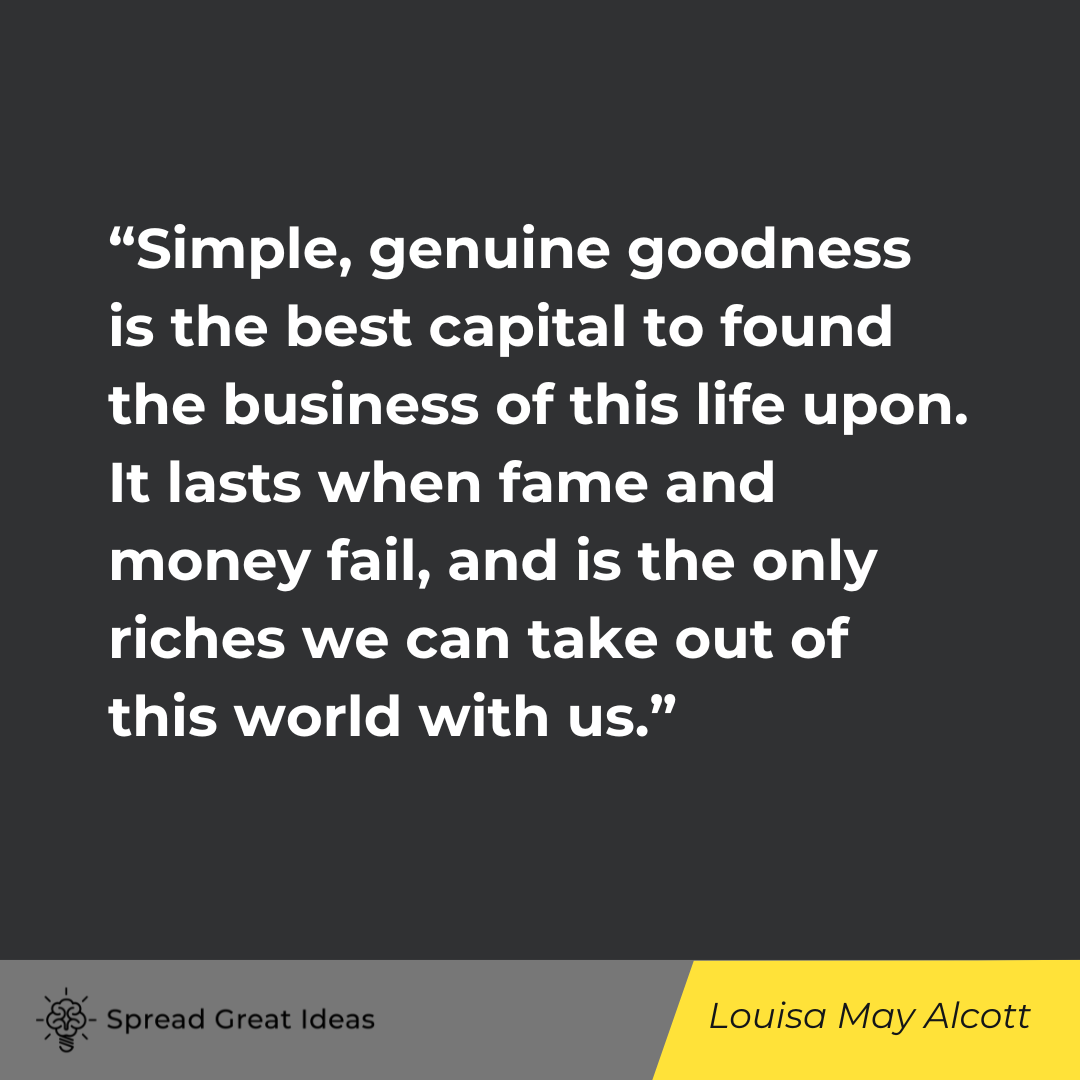
Louisa May Alcott’s quote from “Little Men” extols the enduring value of simple, genuine goodness as the foundation for success in life: “Simple, genuine goodness is the best capital to found the business of this life upon. It lasts when fame and money fail, and is the only riches we can take out of this world with us.” Alcott eloquently emphasizes the importance of moral integrity over material wealth or renown. She suggests that goodness not only sustains us in this life but also transcends worldly pursuits, becoming the true wealth we carry into eternity. This timeless wisdom prompts reflection on the lasting significance of virtuous character amidst life’s transient achievements.
Abraham Lincoln
“I am not bound to win, but I am bound to be true. I am not bound to succeed, but I am bound to live up to what light I have.”
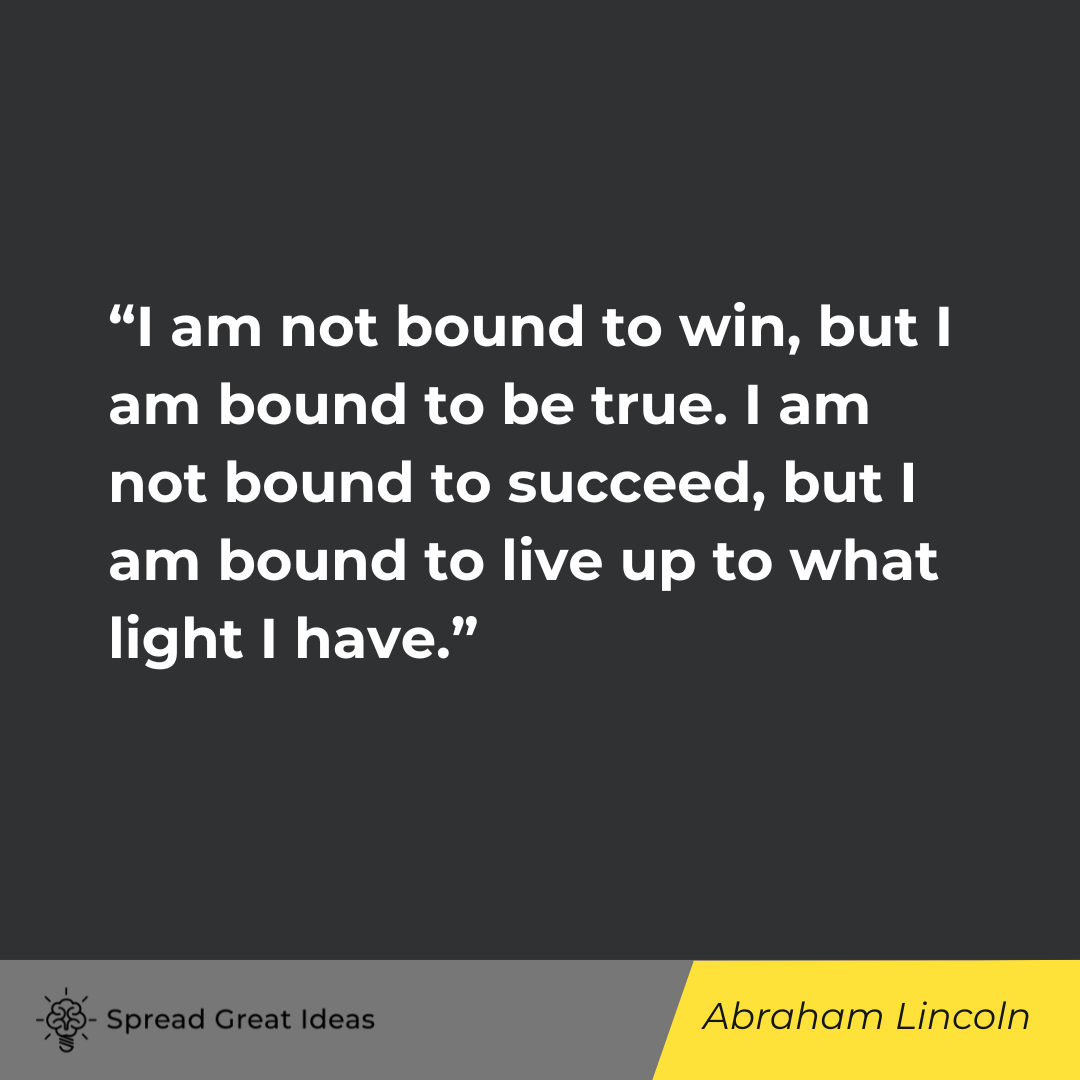
Abraham Lincoln’s quote embodies a steadfast commitment to integrity and authenticity: “I am not bound to win, but I am bound to be true. I am not bound to succeed, but I am bound to live up to what light I have.” With characteristic humility and resolve, Lincoln emphasizes the primacy of moral duty over personal gain or triumph. He acknowledges that success is uncertain, yet unwaveringly pledges to remain faithful to his principles and conscience. This quote serves as a timeless reminder of the importance of staying true to oneself and upholding moral values, regardless of external circumstances or outcomes.
Immanuel Kant
“Seek not the favor of the multitude; it is seldom got by honest and lawful means. But seek the testimony of few; and number not voices, but weigh them.”
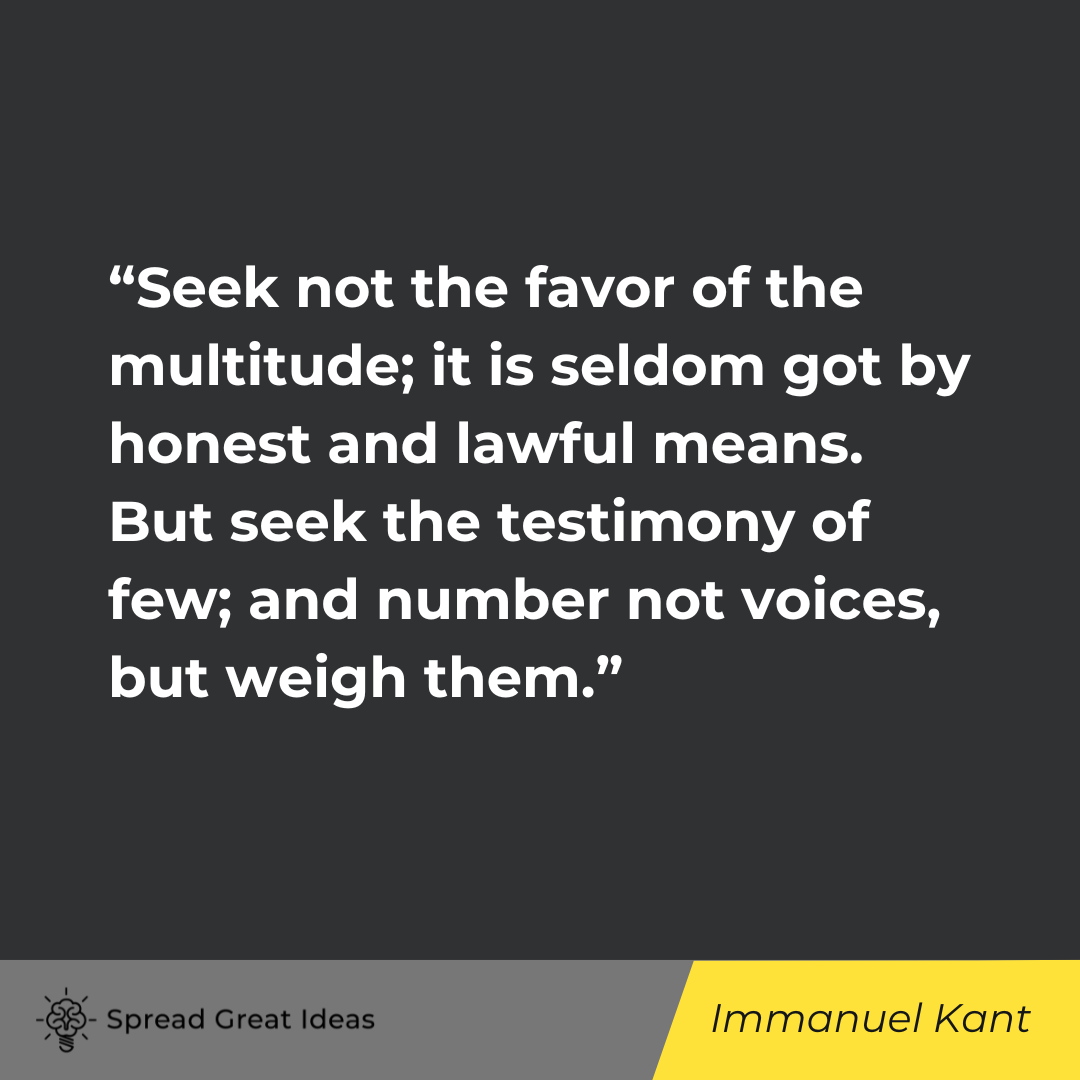
Immanuel Kant’s quote urges discernment in seeking validation: “Seek not the favor of the multitude; it is seldom got by honest and lawful means. But seek the testimony of few; and number not voices, but weigh them.” With philosophical insight, Kant warns against the pitfalls of pursuing popular approval, often acquired through deceit or compromise. Instead, he advocates for seeking the sincere testimony of a select few, emphasizing quality over quantity in assessing opinions. This quote serves as a timeless reminder to prioritize integrity over popularity and to carefully evaluate the credibility of viewpoints, fostering intellectual independence and moral discernment.
Thomas Jefferson
“Honesty is the first chapter of the book wisdom.”
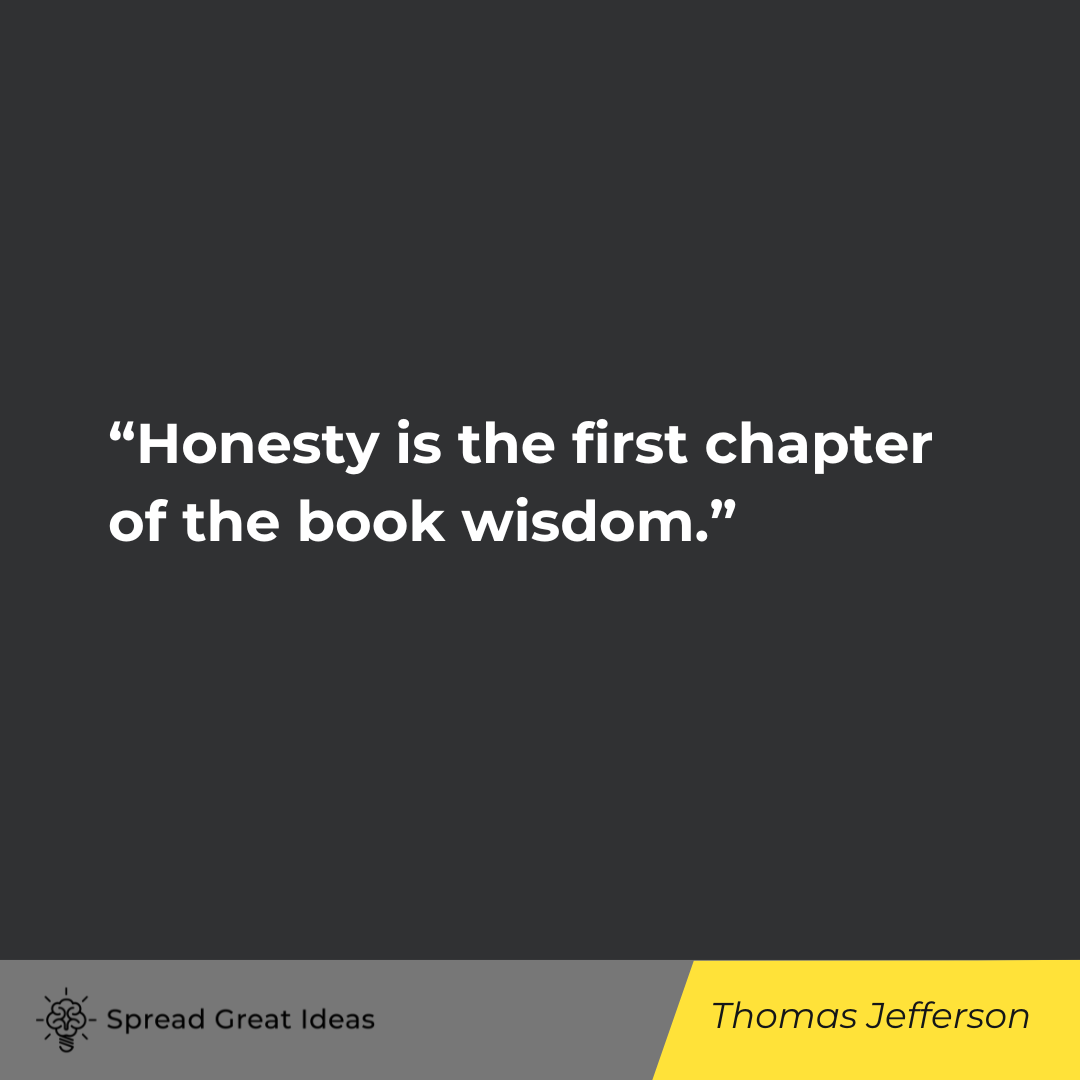
Thomas Jefferson’s quote succinctly captures the foundational importance of honesty: “Honesty is the first chapter of the book wisdom.” With profound simplicity, Jefferson suggests that honesty serves as the cornerstone upon which wisdom is built. By prioritizing truthfulness and integrity in all endeavors, one lays the groundwork for deeper understanding and insight. This quote underscores the inherent connection between honesty and intellectual growth, implying that without honesty, true wisdom cannot be attained. Jefferson’s timeless wisdom reminds us that honesty is not just a virtue in itself but a prerequisite for the acquisition of broader knowledge and understanding.
Chinese proverb
“Avoid suspicion: when you’re walking through your neighbor’s melon patch, don’t tie your shoe.”
– Chinese proverb
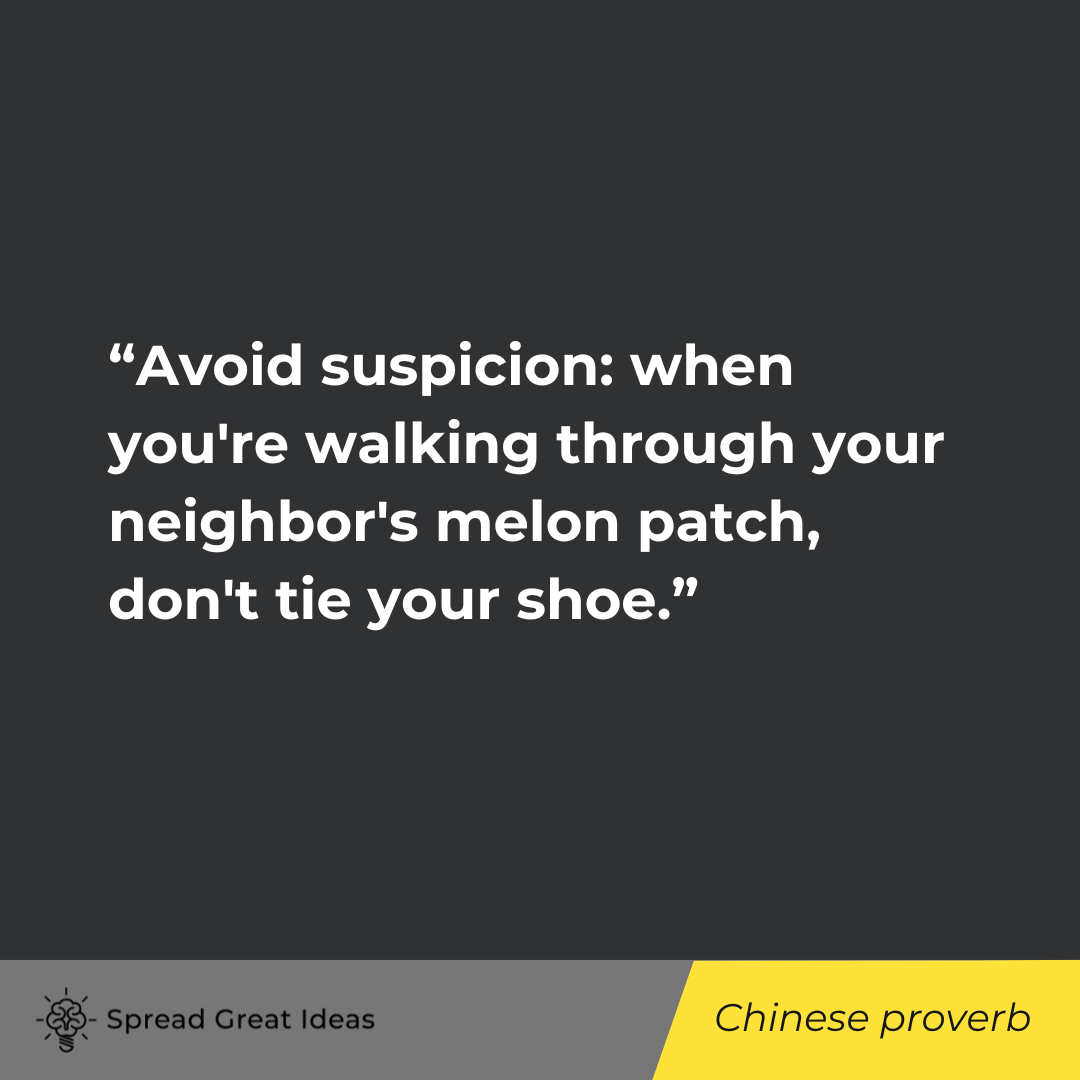
This Chinese proverb offers sage advice on maintaining trust and avoiding suspicion: “Avoid suspicion: when you’re walking through your neighbor’s melon patch, don’t tie your shoe.” With vivid imagery, it illustrates the importance of being mindful of one’s actions, especially in situations where trust and integrity are at stake. Tying one’s shoe in a neighbor’s melon patch implies a suspicious motive, regardless of whether it’s innocent. The proverb encourages prudence and discretion to preserve relationships and uphold honorable conduct. It serves as a timeless reminder to act with integrity and avoid actions that could be misinterpreted or undermine trust.
Mark Twain
“If you tell the truth, you don’t have to remember anything.”
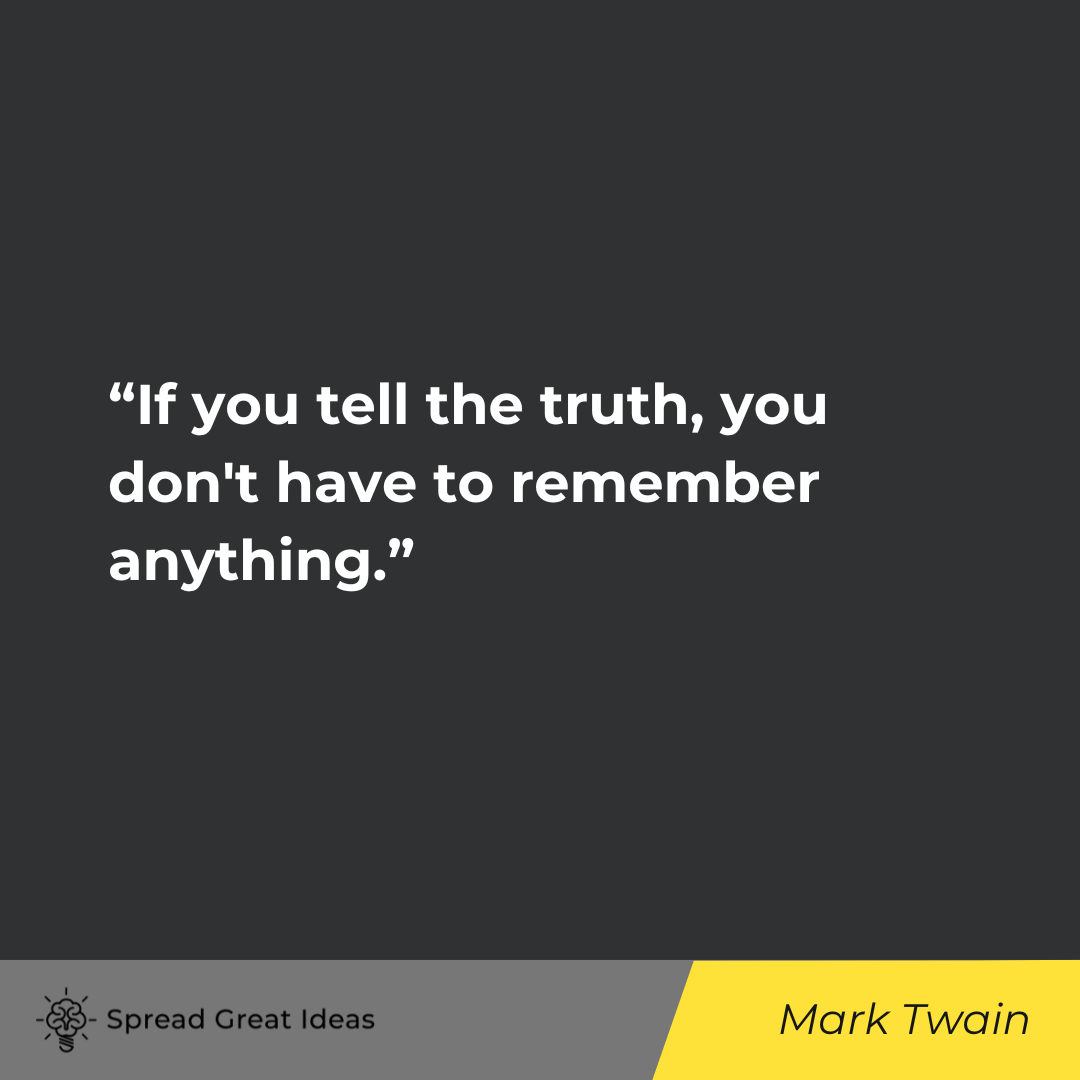
Mark Twain’s quote encapsulates the simplicity and power of honesty: “If you tell the truth, you don’t have to remember anything.” With characteristic wit, Twain highlights the ease and clarity that come with truthful communication. Unlike deception, which requires careful recollection to maintain consistency, the truth remains constant and unchanging. This quote serves as a timeless reminder of the liberating nature of honesty. By embracing truthfulness, individuals free themselves from the burden of fabrication and the anxiety of being caught in falsehoods. Twain’s insight prompts reflection on the enduring value of integrity in fostering genuine relationships and personal integrity.
Friedrich Nietzsche
“I’m not upset that you lied to me, I’m upset that from now on I can’t believe you.”
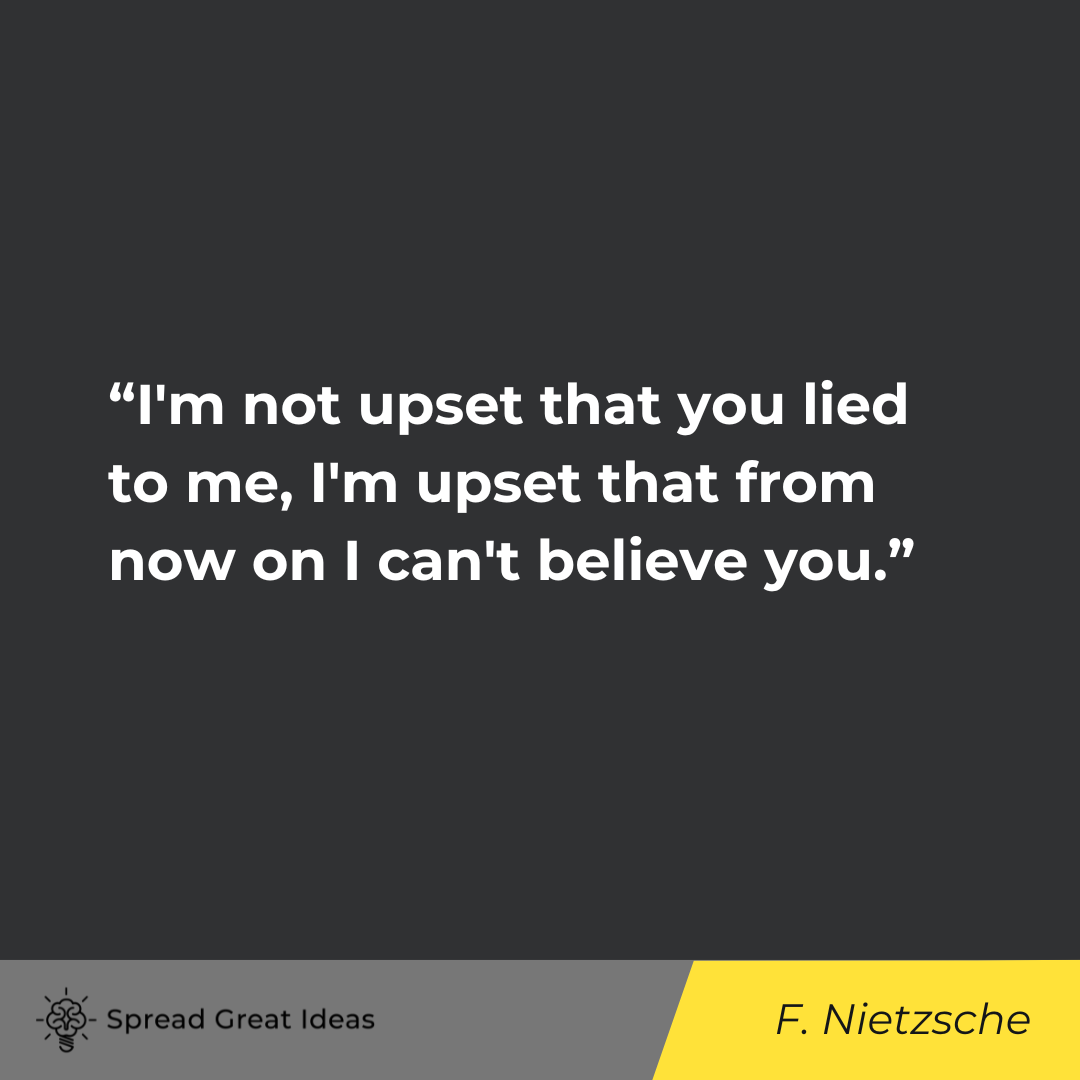
Friedrich Nietzsche’s quote delves into the profound impact of betrayal on trust: “I’m not upset that you lied to me, I’m upset that from now on I can’t believe you.” In this concise statement, Nietzsche articulates the deeper consequence of deceit— the erosion of trust and the loss of faith in the betrayer. While the initial act of lying may cause distress, it is the shattered trust that leaves a lasting mark. This quote serves as a poignant reminder of the fragility of trust and the profound impact of betrayal on relationships. It prompts reflection on the importance of honesty in maintaining the bonds of trust and authenticity.
George Sand
Oscar Wilde
“The truth is rarely pure and never simple.”
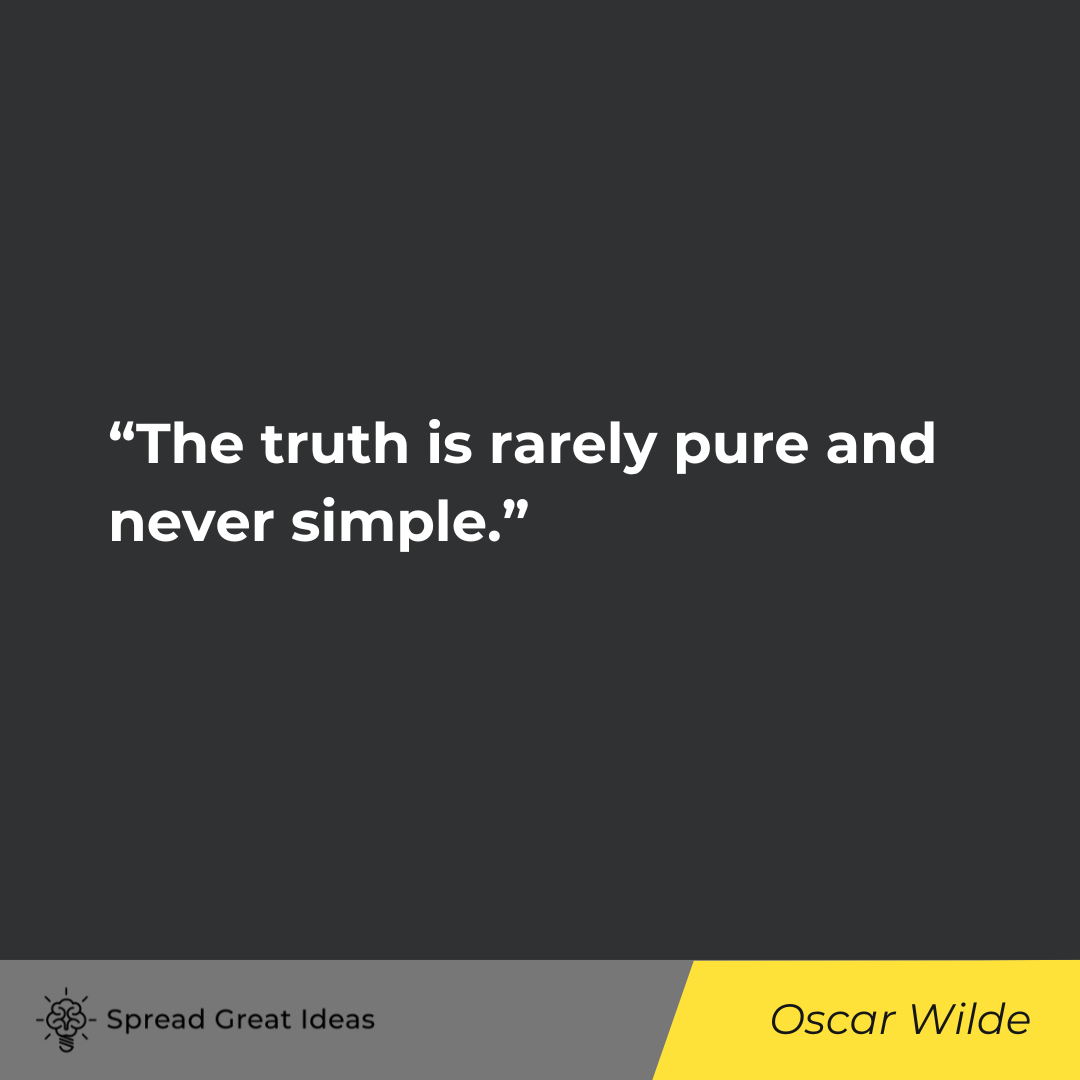
Oscar Wilde’s quote, “The truth is rarely pure and never simple,” encapsulates a nuanced perspective on truth. With characteristic wit, Wilde challenges the notion of absolute truth, suggesting that it is often complex and multifaceted. This quote serves as a reminder of the intricacies of reality and the subjective nature of perception. Wilde prompts reflection on the layers of interpretation and bias that influence our understanding of truth. By acknowledging the inherent complexity of truth, Wilde encourages critical thinking and a deeper exploration of perspectives, fostering intellectual curiosity and humility in the pursuit of knowledge.
Benjamin Franklin
“Never ruin an apology with an excuse.”
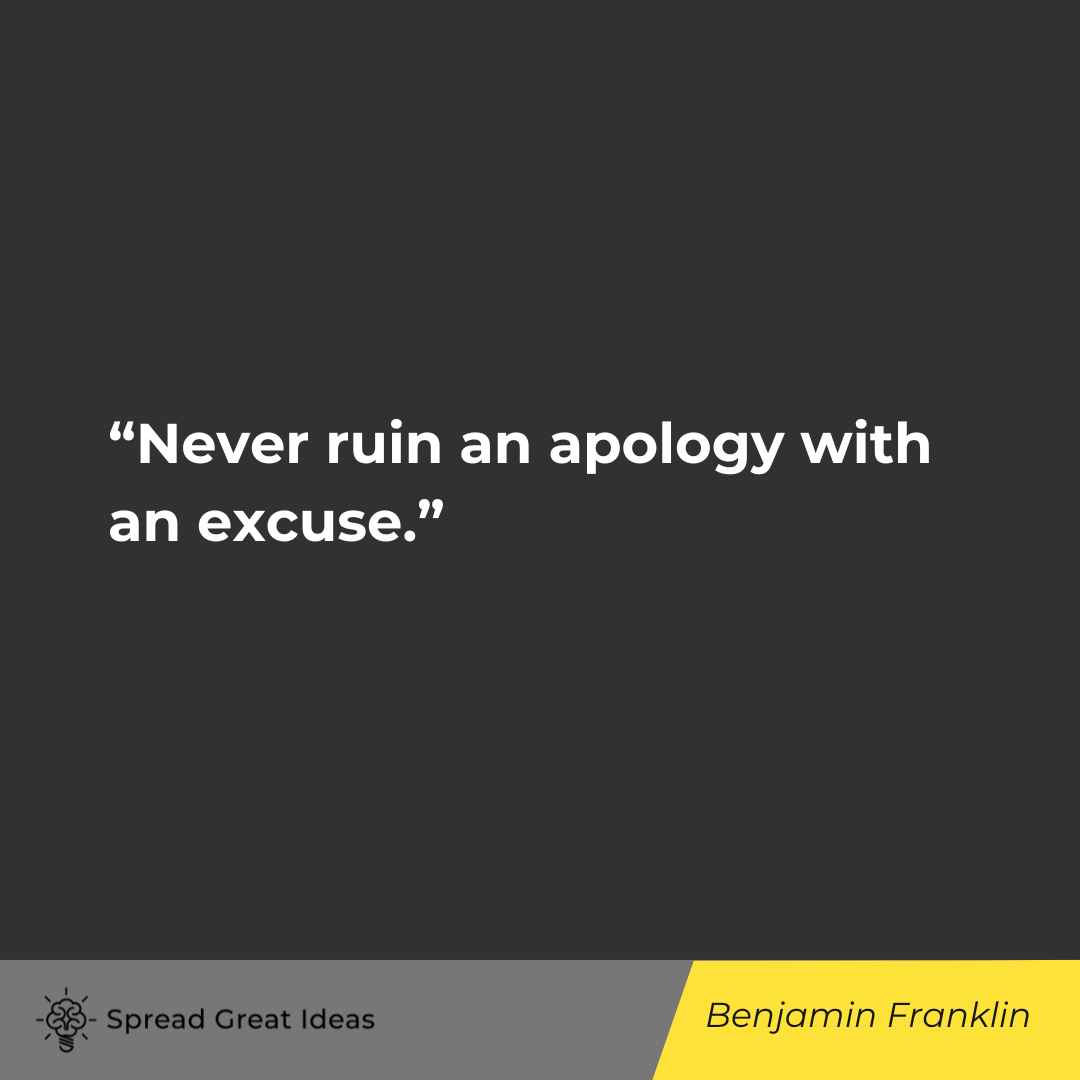
Benjamin Franklin’s quote, “Never ruin an apology with an excuse,” offers timeless wisdom on the art of sincere remorse. With succinct clarity, Franklin highlights the importance of genuine contrition, unmarred by attempts to justify or deflect blame. This quote underscores the value of taking full responsibility for one’s actions and their consequences. By prioritizing humility and accountability in apologies, Franklin emphasizes the restoration of trust and reconciliation in relationships. This quote serves as a reminder of the transformative power of genuine apologies, fostering understanding, forgiveness, and mutual respect in interpersonal interactions.

“Let us accept truth, even when it surprises us and alters our views.”
– George Sand